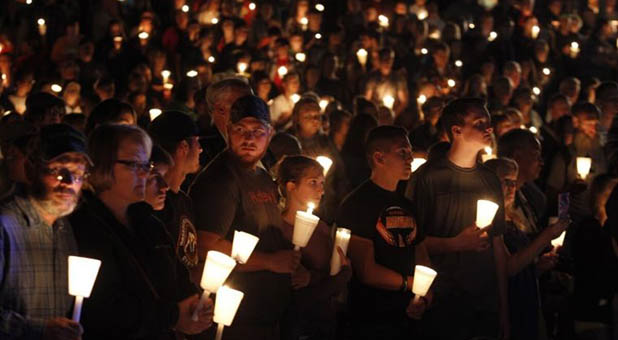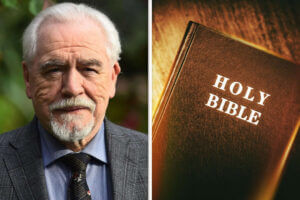Throughout our debates over foreign policy, trade policy, immigration policy and otherwise, the 2016 election has seen increasing concentrations and divides between nationalism and globalism, each blind in its own way.
Those who promote a (supposedly) “America first” agenda, ignore the impacts to our neighbors across the globe, each created in the image of God and deserving of the same rights and freedoms we enjoy. Meanwhile, the globalists ignore the benefits of local community and national sovereignty, promoting inclusion to the detriment of distinction.
This needn’t be an “either-or” divide, and for the Christian in particular, the choice is particularly ill-suited to our basic theological vision.
As Peter Leithart explains, when it comes to nationalism vs. globalism, “Christians must refuse the choice”:
We are members of a communion that, now more than ever before, is geographically universal. The church is ecumenical, a worldwide “Abrahamic empire.” … We are members of a real global community, which is not a Davos elite or a subversive Anonymous but a community that includes all sorts and conditions of men and (today especially) women. Our deepest brotherhood isn’t with other citizens of our nation but with those who are united with us by the Spirit in the Son. Baptismal water is thicker than blood; the Word unites us more basically than commitment to any Constitution, no matter how wise its political institutions. We cannot be nationalists.
On the other hand: The church is a body with many members, each individual member contributing in a unique way to the edification of the whole. The church is a nation of priests that encompasses all nations, tribes, tongues. Nations retain their national identities—their languages, histories, and customs—when they are disciples by the gospel; their national identities are fulfilled in service to Christ the King. We cannot be globalists.
Indeed, in its “kingdom first” orientation, the church breathes life into such matters, confounding the dichotomies of the world and the humanistic orthodoxies of the local labor union or the United Nations. “Our gratitude for the gifts of citizenship is qualified by our gratitude to our Father, the Giver of all good and perfect gifts,” Leithart writes. “We never owe our ultimate debt of gratitude to any but Him.”
In the gospel, we find our true citizenship, and it transforms our cultural imaginations. From the day-to-day activities of family life and creative service to the high halls of policymaking, we must master what Leithart calls the “patriotic-global two-step”
This stance doesn’t translate easily into any policy prescriptions, but the very un-ease of this outlook might play an important political role. Our love for the nearest neighbor can inoculate us against evangelists of globalism, while our catholicity enables us to resist the lure of America firsters. Our nationalist-globalist mix should inhibit the militarism that has inspired America’s misadventures in war. We serve our fellow citizens who suffer the dislocations that result from a global economy, but we see immigrant communities as fields of mission and service, and often a vibrant source of edification, that the Lord has kindly brought to our doorstep.
What Brandon McGinley wrote recently about Catholicism should apply to the Christian churches more generally: “When we hear a black man describe police violence; when we hear an undocumented immigrant describe exploitative labor; when we hear a prisoner describe institutionalized brutalization; when we hear a young gay woman describe homelessness—our first response must not be to attempt to discredit, to rationalize, to explain away. Rather, we must give them the credit we would expect others to give to us, and try to understand experiences that differ substantially from our own… This doesn’t mean credulously accepting every narrative or policy proposal that is accompanied by a claim of oppression; we still have to apply our rational faculties. It does mean treating every story with the solicitude we would reflexively grant to members of our own economic, social, racial and religious tribes.”
We must learn to master the patriotic-global two-step, at the risk of being misunderstood, despised and marginalized by both nationalists and globalists. Against globalism and nationalism, the Christian slogan must always be: Kingdom first.
Ours is a neighbor-love that recognizes the importance of belonging while embracing the stranger. The policy tensions will remain, but only from this starting point can true human flourishing begin. {eoa}
Joseph Sunde is a writer and project coordinator for the Acton Institute, serving as editor of the Letters to the Exiles blog and content manager of the Oikonomia channel at patheos.com. He is the founder of Remnant Culture and was a longtime contributor to AEI’s Values & Capitalism project.
See an error in this article?
To contact us or to submit an article






















